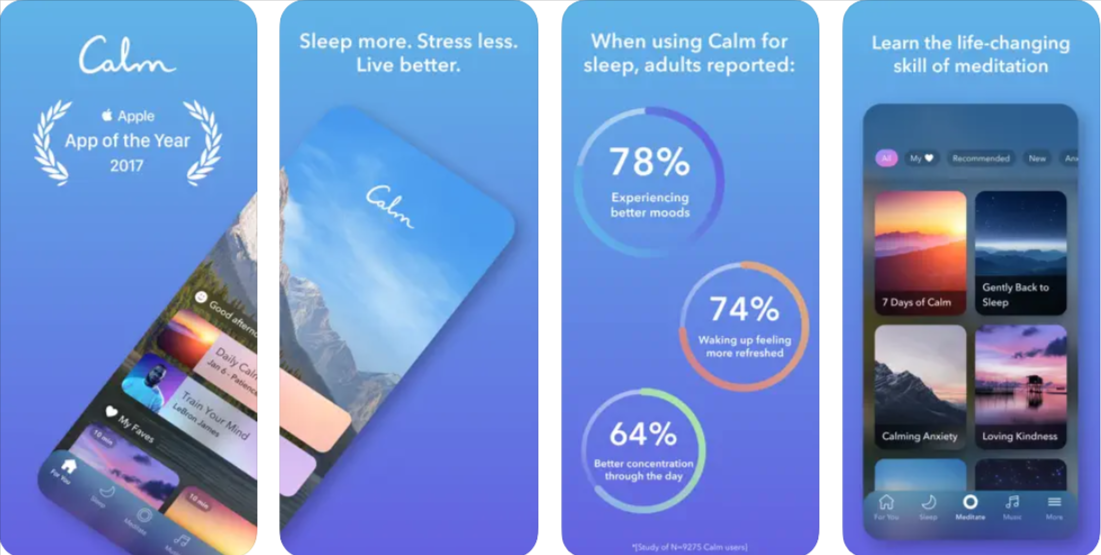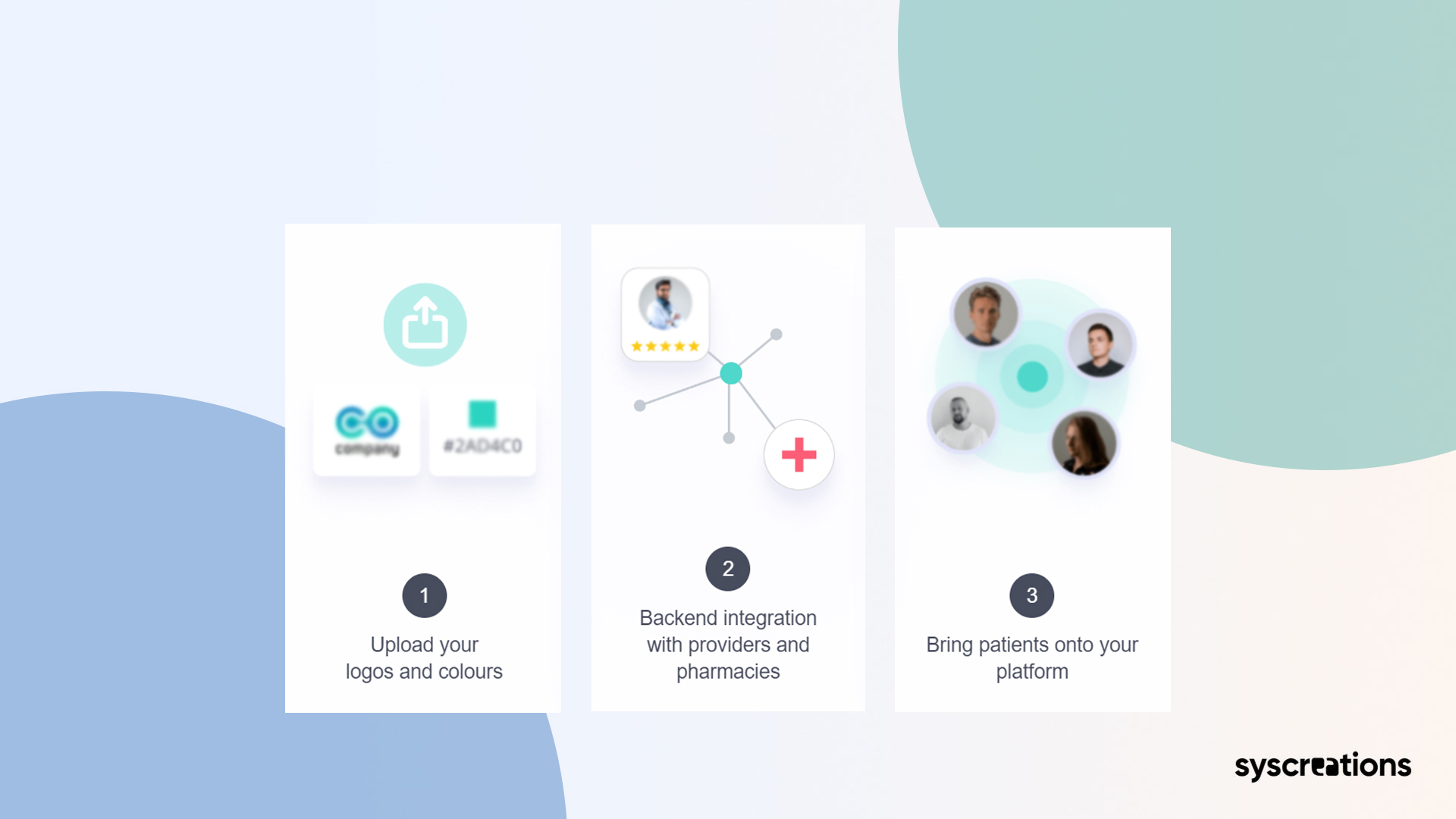Building a Successful Mental Health App: Key Lessons from the Top 8

2 years ago
Mental health is a growing concern, both globally and here at home.
According to the World Health Organization, around 450 million people worldwide struggle with mental illness, making it the leading cause of disability.
In Canada alone, more than 6.7 million people are affected, with one in two Canadians experiencing mental illness by the time they turn 40.
In the US, over 1 in 5 adults live with a mental health condition.
Alarming, right?
But here’s the silver lining—mental health apps are stepping in to offer accessible, affordable, and flexible support.
With over 4,000 Canadians dying by suicide each year and the demand for mental health care rising, these apps are helping bridge the gap between those who need help and the professionals who can provide it.
For therapists and health-tech entrepreneurs, there’s never been a better time to explore how digital solutions can transform mental health care.
Let’s explore the top mental health apps making waves in Canada and the USA in 2025!
Note: The following are the top mental health apps in Canada that you should study before planning to develop a mental health app in Ontario, Canada.
1. Calm

One of the most popular apps in Canada’s health and fitness category, Calm is designed to help users manage stress, sleep better, and practice mindfulness.
Features
- 100+ sleep stories for relaxation
- 30+ nature sounds to aid sleep and meditation
- Guided meditations for stress and anxiety
Pricing
- Freemium model
- $12.99/month
- $59.99/year
- $299.99 for lifetime access

2. What’s Up

This free app is built to help users manage depression, anxiety, and stress using evidence-based methods like Cognitive Behavioral Therapy (CBT) and Acceptance Commitment Therapy (ACT).
Features
- Techniques from CBT and ACT
- Mood tracking and habit-breaking exercises
- Simple and easy-to-use interface
Pricing
- Free

3. Youper – Emotional Health
Developed by doctors, scientists, and engineers, Youper uses AI to offer personalized mental health support. It tailors therapy and mindfulness techniques based on the user’s emotional state.
Features
- AI-powered therapy personalization
- Combines therapy and mindfulness exercises
- Mood tracking and symptom analysis
Pricing
- Freemium model
- $44.99/year for premium features

4. MindDoc
Created by clinical psychologists and researchers, MindDoc offers comprehensive mental health support for conditions like depression, anxiety, and eating disorders. It also tracks the user’s mood and provides insights into their mental health patterns.
Features
- Mood tracking and behavior reports
- Professional support for depression, anxiety, and insomnia
- User insights based on symptom tracking
Pricing
- $4.49/month for basic services
- $47.99/month for MindDoc Plus
MindDoc is the top mental health app with over 3M+ downloads.
5. Sanvello
Sanvello offers a blend of self-care, peer support, and professional therapy for managing mental health issues such as stress and anxiety. With over 3 million downloads, it’s widely trusted in the US.
Features
- Self-care tools, peer support, coaching, and therapy
- Personalized mental health plans
- Guided exercises and goal tracking
Pricing
- $8.99/month or $53.99/year for self-care
- $50/month for coaching
- $140/therapy session
6. Breathe2Relax
This app focuses on teaching users stress management through diaphragmatic breathing techniques. It helps reduce stress and anxiety by offering detailed breathing exercises.
Features
- Breathing exercises for stress reduction
- Education on the effects of stress on the body
Pricing
- Free

7. iMoodJournal
iMoodJournal is a mood-tracking app that helps users monitor their emotional state, sleep, stress levels, and more. It’s highly recommended for users dealing with bipolar disorder.
Features
- Mood, sleep, and symptom tracking
- Provides insights into emotional patterns
- Recognized as one of the best apps for bipolar disorder
Pricing
- Freemium model
- $2.99 for premium features
8. Headspace – Mindful Meditation
Headspace is a leading app for mindfulness and meditation. It offers guided sessions to help users manage stress, improve focus, and sleep better.
Features
- Guided meditations for stress, sleep, and focus
- Tailored mindfulness exercises
- Learning sessions on meditation techniques
Pricing
- 14-day free trial
- $9.99/month or $49.99/year for premium features
Top Mental Health App Ideas to Focus On: Proven Paths to Success
1. General Mental Health Apps
- Help users track and improve their mood
- Build healthy habits and emotional control
- Offer mood tracking, journaling, and goal-setting tools
2. Mental Health Education Apps
- Provide knowledge on mental health disorders
- Offer resources like articles, podcasts, and videos
- Educate users about symptoms, causes, and treatments
3. Mental Disorder-Specific Apps
- Focus on managing specific conditions (e.g., depression, anxiety)
- Track symptoms and monitor behavior
- Provide access to therapists and support groups
4. Self-Improvement Apps
- Target users looking to enhance mental wellness
- Offer meditation, breathing exercises, and relaxation techniques
- Popular due to wide appeal for stress management and mindfulness
To target a niche audience, you can also focus on building a successful LGBTQIA+ mental health app, similar to Folx Health.
How You Can Monetize a Mental Health App
If you're looking to turn your mental health app into a profitable venture, consider these effective monetization models:
1. Direct-to-Customer (D2C)
The D2C model promotes direct selling of your service (mental health app) to customers with a monthly subscription fee.
2. Freemium Model
The Freemium model promotes the utilization of basic features for free and a subscription fee to use premium features.
3. Self-Insured Employer Benefits
This model promotes a partnership with employers to give mental wellness services to their employees.

Want to Build a Mental Health App? Here’s How We Can Help You
We’re here to support you in developing a mental health app that makes a real difference. Here’s how we can assist you:
1. Inclusive and Personalized Mental Health Support
We help you connect users with qualified mental health professionals who genuinely understand the unique experiences of diverse communities.
Your app will feature personalized care options, including therapy, counseling, and support groups, all tailored to address the specific challenges users encounter.
2. Integrated Prescription Services
To enhance the user experience, we offer seamless integration with pharmacy networks.
Our system simplifies the process of managing and accessing medications, so users receive comprehensive care all in one place.

With our dedication to creating effective health-tech solutions, we’re excited to help you build a mental health app that authentically supports and empowers your users.

